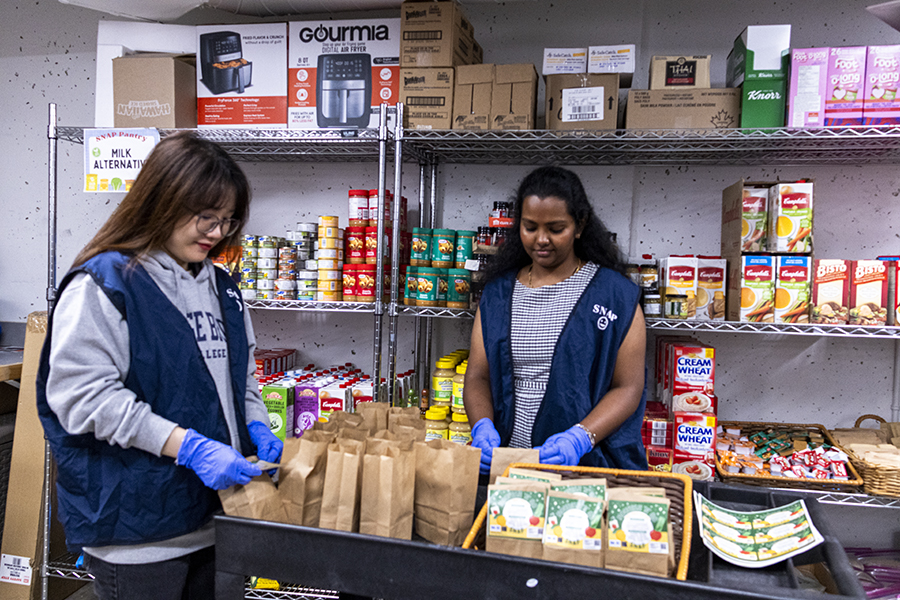Food insecurity and student hunger top of mind this year.
On World Food Day, student hunger has become the focus in Canada.
Rising tuition and living costs are forcing students to skip meals or rely on food banks. Hunger is a real problem, even in Canada, one of the wealthiest countries in the world.
Nearly 60 per cent of Canadian post-secondary students experience food insecurity. Indigenous students are more than twice as likely, Black students three times as likely, and 17 per cent of international students rely on food banks notes the Centre for Innovation on Campus Mental Health.
Financial struggles are the main barrier to getting enough nutritious food.
Gabriella Johansson, SNAP lead, has seen the impact that nutrition has on student’s education since she started working here in 2013.
“I’ve been here since 2013 [and] we’re here to offer support just like counseling does [with a focus on] mental health. But over the years, it’s become a strong emphasis on food support. I’m going to be having a trustee coming to talk about finance. He’s a lot of fun. We’ve done that over the years as well. We’ve done things on exercise and everything else. But for most people, they associate SNAP with food support. And what we do is we’ve been around for so long, we’ve developed quite strongly in helping students, the amount of food we offer has increased drastically, which is good,” she noted.
Johansson adds that during a time when the focus is on food insecurity, food waste is something everyone needs to work towards stopping.
“So, we try to encourage people that food waste has to start with all of us. So, you know how to store food freeze, it, that sort of thing. That’s very helpful. We just look at the amount of people coming in. We adjust the numbers accordingly, so we don’t contribute to food waste either.”
SNAP offers various programs to students, highlighting how incorporating healthy nutrition can positively support student life.
Naiima Farah, counsellor at George Brown College, notes that there are many ways in which poor nutrition can affect a student’s wellbeing.
“It’s something that impacts our students, because our students are one, they’re embedded in a broader system. Our student’s mental health and wellbeing is impacted mentally, they’re impacted emotionally. They’re impacted physically, when they don’t have access to nutritious food, for example, from an academic standpoint, it becomes very difficult for them to focus. I know that a one-to-one level, for example, it’s hard to do the work with students when they’re coming in hungry in the session. So, there are times where that session then has to take a bit of a detour to focus on the immediate need, which is food,” said Farah.
“There’s a proverb, if you want to go fast, go alone. You want to go far, go together, and so when we’re addressing or speaking to issues such as this one over here, around food insecurity, it’s something that we all have a role to play. From policy makers, to educators, to community members, it’s that collective effort and exercising the agency we do have, whether it may be smaller or larger in scale. And what World Food Day does is allows us to utilize one more day to actually create more awareness.”
She said shame often stops students from seeking help and stressed the need for campus support, SNAP partnerships, and awareness to ensure students get nutritious food and reduce stress. She encouraged students to reach out, noting that counselling and campus services are confidential and provide fast help while connecting them to wider resources.
World Food Day highlights that student hunger in Canada is an ongoing problem.
Programs like SNAP, campus resources, and food banks try to help students and the broader community access food, much more needs to be done to ensure basic necessities are not out of reach.


